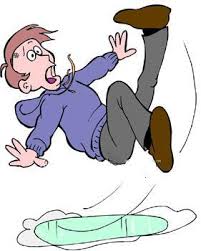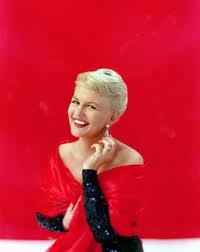
I once served on a jury charged with deciding a slip and fall case. After listening for five days to arguments on both sides, which included much wringing of hands from the complainant, we decided unanimously after deliberating for ten minutes that the grocery store was not at fault. The paperwork finished and the bailiff summoned, we prepared to end our service and go about our business when one hapless juror raised his hand and said, "but I think the woman should get something."
 |
| Peggy Lee |
It seems to me that this is a clear example of that juror being unclear on the concept. If the store isn't at fault, they don't have to pay. The late, great song stylist Peggy Lee puts it wonderfully in the Lieber and Stoller song, "Some Cats Know and Some Cats Don't, And if A Cat Don' Know, He Just Don' Know." This is, of course, a great pity in the matter of civic justice. But a lack of clarity turns up everywhere, even when you least expect it.
believe many of the fingerings, note-grouping concepts, rotational ideas and so on make the passages easier to play than when approached with more traditional ideas." He then adds: "Many pianists' technical mastery (I know from personal experience) has greatly increased after a year of vigorous Hanon and Czerny, resulting in much stronger fingers without injury."
 My first thought was that he knows about these "many pianists" because he taught them and because that was his own path. The concept is also just in the wind. The latter explanation is very likely because, due to a long tradition of misunderstanding about how to play the piano in the most efficient way, many pianists have suffered needlessly through the mindless catechism of exercises designed to "strengthen" the fingers and produce "finger independence."
My first thought was that he knows about these "many pianists" because he taught them and because that was his own path. The concept is also just in the wind. The latter explanation is very likely because, due to a long tradition of misunderstanding about how to play the piano in the most efficient way, many pianists have suffered needlessly through the mindless catechism of exercises designed to "strengthen" the fingers and produce "finger independence."
I've said it before and I'll say it again now: It's possible to play the piano using many different technical approaches or no particular approach at all. And I don't care to take anything away from someone who has found something that works. Elsewhere in this blog you can find detailed information about my views on technique, or in the book Piano Technique Demystified: Insights into Problem Solving. I feel obliged to point out, however, that if that professor of piano had applied the same judiciousness to passages in repertoire that he applied to Hanon and Czerny, he very likely would have achieved the same "technical mastery" and in the process he'd have something worthwhile to play.

No comments:
Post a Comment